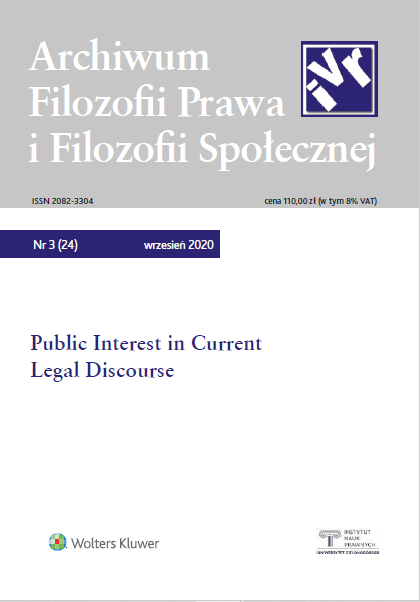Is Post-Mortem Organ Donation a Duty Towards Society and Can It Be Justified by Public Interest? Recent Bills to Amend the German Transplantation Law
Is Post-Mortem Organ Donation a Duty Towards Society and Can It Be Justified by Public Interest? Recent Bills to Amend the German Transplantation Law
Author(s): Martyna Łaszewska-HellriegelSubject(s): Law, Constitution, Jurisprudence, Ethics / Practical Philosophy, Philosophy of Law, Philosophy of Law
Published by: Stowarzyszenie Filozofii Prawa i Filozofii Społecznej – Sekcja Polska IVR
Keywords: opt-out model; organ donation; transplants; German organ transplantation law
Summary/Abstract: The issue of organ donation from deceased donors remains unsatisfactorily resolved in Germany. The number of donors has remained very low in recent years. Consequently, the German Bundestag was holding a debate on two MP bills aimed at amending the organ transplantation law. Two main bills were presented by different groups of MPs. The more controversial of them, supported by the Minister of Health, tried to introduce the opt-out model into Germany’s organ transplantation system. The second one aimed to improve the existing opt-in model. During the final voting, the Bundestag decided against the opt-out model and in favour of the improved opt-in one. In some experts’ eyes, an opt-out model imposes an obligation on the citizens to donate an organ after brain death. Can such a duty to the society be justified by public interest or other principles? The goal of this article is to offer an answer to this question by analysing the provisions of the German constitution.
Journal: Archiwum Filozofii Prawa i Filozofii Społecznej
- Issue Year: 24/2020
- Issue No: 3
- Page Range: 53-65
- Page Count: 13
- Language: English

